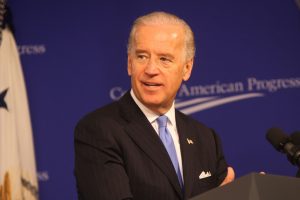“I announced this morning that I am suspending my campaign for president,” Elizabeth Warren said on March 5 with a tone that was, for her supporters, strangely hopeful. In fact, as she spoke those words, I felt a lot of conflicting emotions: sadness, pride, confusion, but most significantly, nostalgia. My mind started to paint a thousand images of the past year. As I watched her announce the end of her campaign, the image that endured was the night she announced the beginning.
The news that Elizabeth Warren intended to run for president set off smiles, laughs, and ecstatic jumps in my dorm room. My roommate, best friend, and I all radiated a happiness and vigor that was insatiable. Warren’s iconic campaign color, Liberty Green, reflected in our eyes while we watched the announcement video. Rife with passion, my plans for the night started to change. I dropped all intent to be productive, and instead put on a face mask, steeped some tea, took her book “This Fight is Our Fight” off my shelf, and read through the night the words of possibly America’s first female president.
Warren’s campaign immediately struck an emotional and passionate tone. Always a planner, she outlined exactly what kind of America she fights for: One where our democracy and economy work for all of us, no matter where we live or where we come from. One where we can strive for what we all truly want: to work hard, play by the same set of rules, and take care of the people we love. Her vision for American ideals was present in every aspect of her campaign—her intricate plans, her pinky-promises, all the way down to her iconic Liberty Green.
When I was 12, I wrote an essay about one of my favorite fellow Okies, who went by “Betsy” in our shared hometown of Norman. And now she was running for president. It would make sense that I had such a strong reaction to the candidacy of one of my long-term role models, but I didn’t realize that people without that connection would feel the same. I didn’t expect the same excited shrieks from my roommate and best friend that day. Nor did I expect an equal amount of passion from hundreds of people who I can now call friends when we set up Hoyas for Warren.
For seven months, we worked hard. We phonebanked to early primary states. We canvassed in Virginia. We designed buttons. We wrote pamphlets. We planned events. We fundraised. We tabled. We organized. We led. We knocked on those doors with the same fists that Elizabeth used to fight Wall Street, big business, and deep-pocketed billionaires. We talked to friends, family, and voters with the same persistent words of her inspiring campaign. And in everything we did, our eyes gleamed with Elizabeth’s vision, a vision of progression, compassion, accountability, and equal opportunity. We all so deeply believed in that vision.
So, Super Tuesday was hard. I was confused when the immense passion and dedication I saw around me for Elizabeth Warren’s campaign did not translate into delegates. When she dropped out two days later, it was even harder. I can’t tell you how many people who once came to my dorm to jump for joy now came to cry. But the following days were the hardest. People were outraged for all sorts of reasons. Some were rightfully saddened because all those little girls that she pinky-promised would have to wait four more years. Some were angry because they felt that Warren was the most competent and well-prepared presidential hopeful. And some were angry at her, heavily criticizing every move short of an endorsement as a betrayal of her life’s work. For a brief moment, all that grassroots organizing for seven exhausting months felt futile. We didn’t know what to think. Her supporters scrambled to find the candidate they so loved in Bernie and Joe, but she just wasn’t there.
Shortly after the news that she was suspending her campaign, I went to Mexico to visit my sister for spring break. Women there were outraged there for a plethora of reasons, but especially the increased femicide and violence against women. So, they decided to disappear from society and organize a national strike called “A Day Without Us.” These women wanted to give their nation a taste of an economy, culture, and life without them—and, for a day, the nation became malnourished with a bland and empty flavor. Because of her traditionally marginalized status, a woman’s profession is not entitled to her by society, but her work is somehow assumed. Many times, she may feel that she has to prove her occupation to society, which motivates her to work relentlessly and reinforce a position she has already won, or gain one she hasn’t. Of course, some men try to shake this institution, but it is difficult when it inherently benefits them. Oppression of minorities is a stain of different hues, but often the same base color throughout, which allows women to empathize with other marginalized groups on some level. These phenomena, paired with the fact that women’s issues are best characterized by women themselves, produce an interrelated feminine insight. Therefore, a world without women loses productivity, empathy, and understanding. There is a list much longer than this of undeniably vital contributions of women to society, and a presidential race is no different.
Not to undermine the women that work in the Sanders or Biden engine, but a woman at the forefront of a campaign carries unique visibility and direction. Elizabeth Warren was a once-in-a-lifetime candidate that struck a chord in millions of people strong enough to uproot their lives and pour their heart into the movement. Her empowering run deserves reflection and recognition in itself, but her legacy ripples outward.
In that hopeful announcement of her intent to run, Elizabeth assured us, “if we organize together, if we fight together, if we persist together, we can win.” Fast-forward a few months of dedicated campaigning, she thanks her staffers and supporters for leaving “plenty of blood and teeth on the floor” in a righteous fight. Maybe we didn’t win like we wanted to—but we did win. Just this past week, both Biden and Sanders have adopted some of her most significant plans and ideas, from portions of the wealth tax, to her plans for combatting Coronavirus, to her ideas involving education costs and bankruptcy. Katie Porter, a co-campaign manager, expertly pressed the director of the CDC to commit to free coronavirus testing. Marie Newman of Illinois, whom Elizabeth and her team leaned heavily into even before her official suspension, dethroned an eight-term congressman who actively worked against the progressive cause. I can imagine the big smile on Warren’s face as she witnesses the strong coalition of fighters she has put together.
As for Warren herself, she is doing what she has spent a lifetime doing. She warns of the economic recession caused by COVID-19, of course, accompanied with thoughtful plans that protect consumers and the most vulnerable during this outbreak. She is holding the wealthy and well-connected accountable, and making certain they play by the same rules we all do. She is fighting. She is persisting, just like all of us. Elizabeth Warren persists with heart and grit and determination and selflessness and passion. She taught me an invaluable lesson: there are selfless fights worth fighting in this world that either end with victory, or plenty of blood and teeth and legacy left on the floor. That’s why I’ll forever be a Warren democrat. Her vision will emanate from my actions no matter what fight I’m devoted to in my future. Thanks to such an empowering campaign and inspiring candidate, the United States of America is now full of eyes rife with that same gleam of liberty green.
Image Credit: James Bond







[…] View Original […]